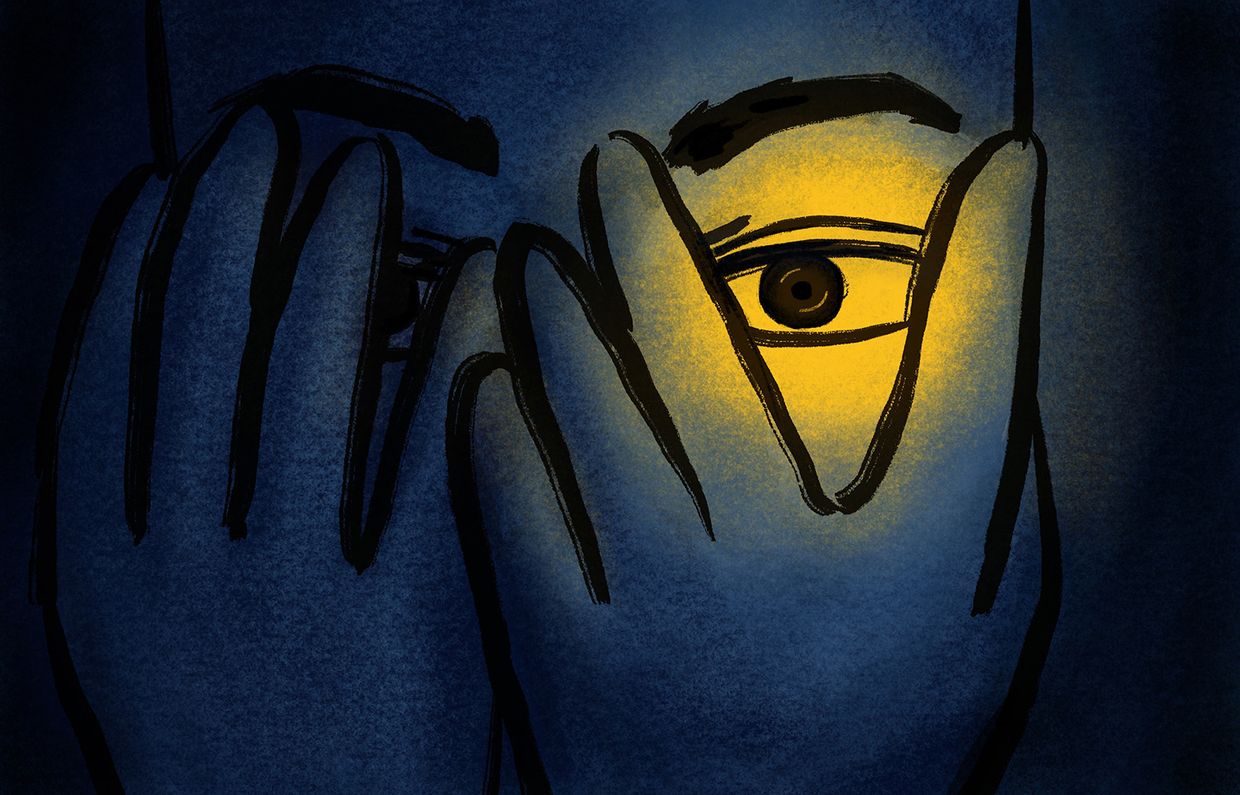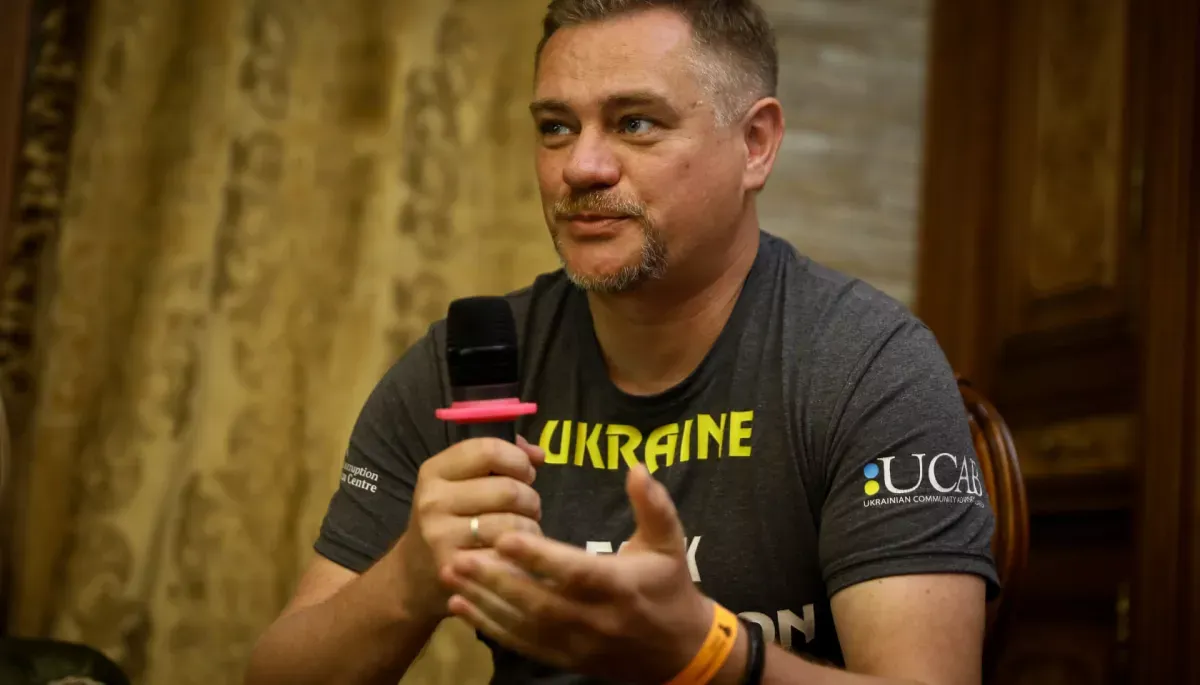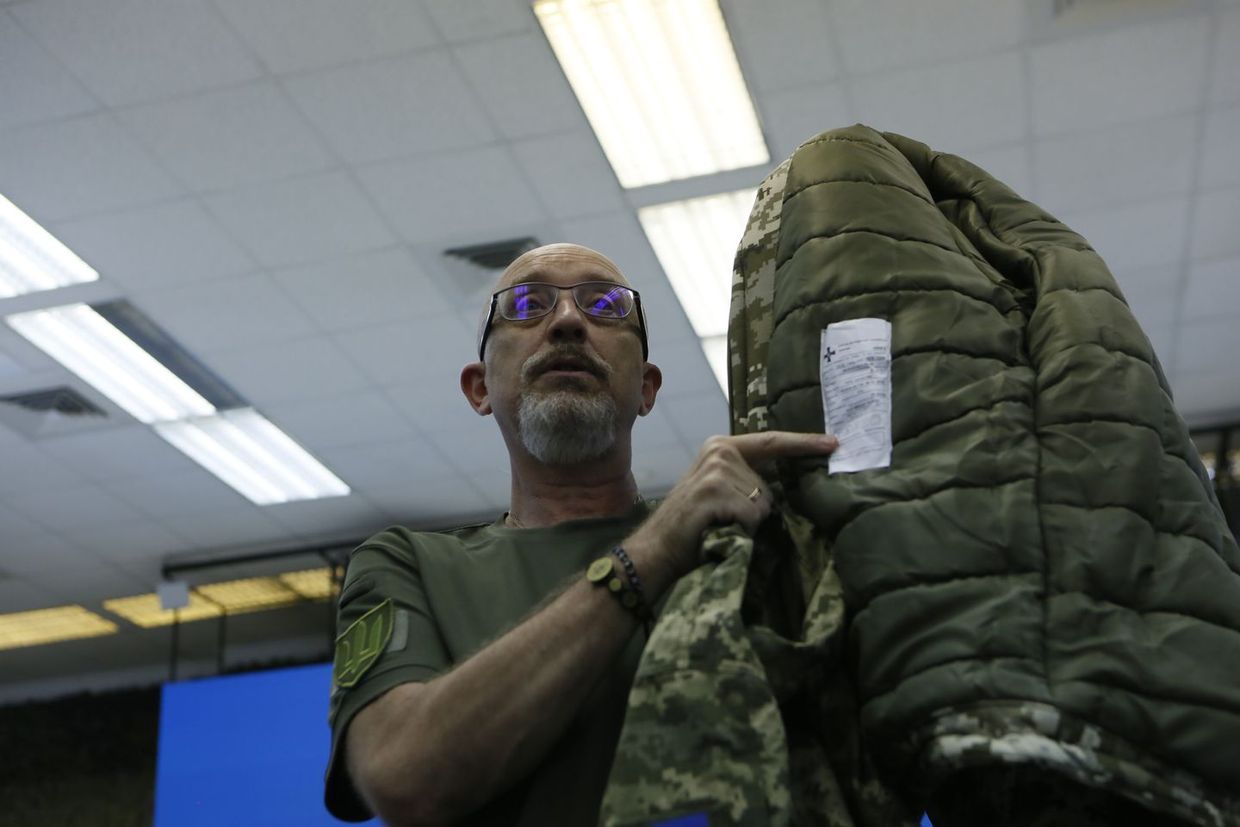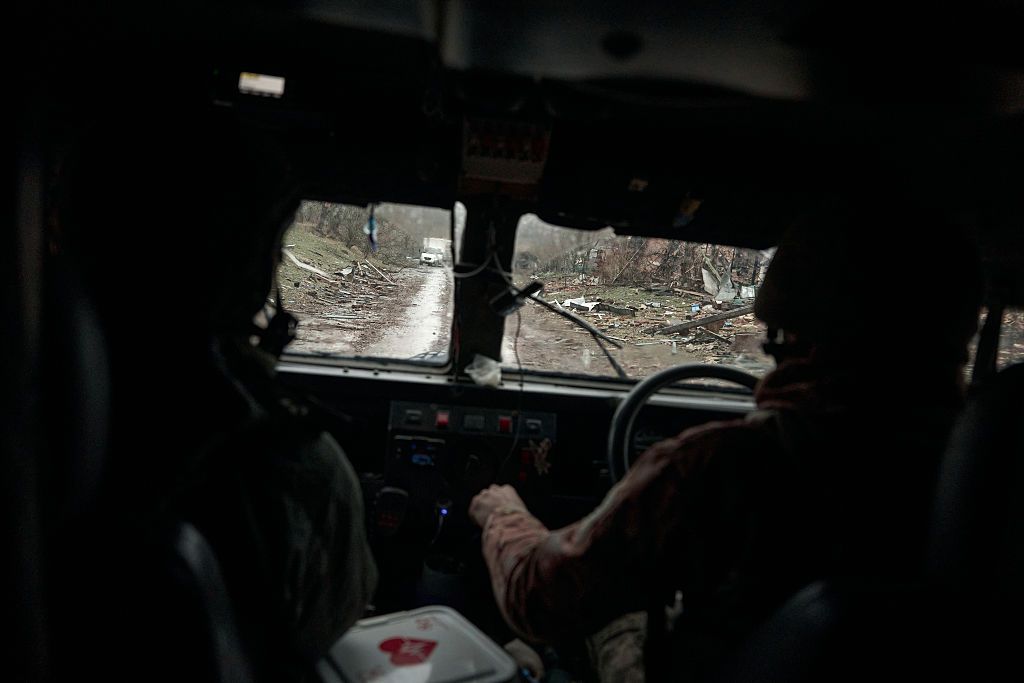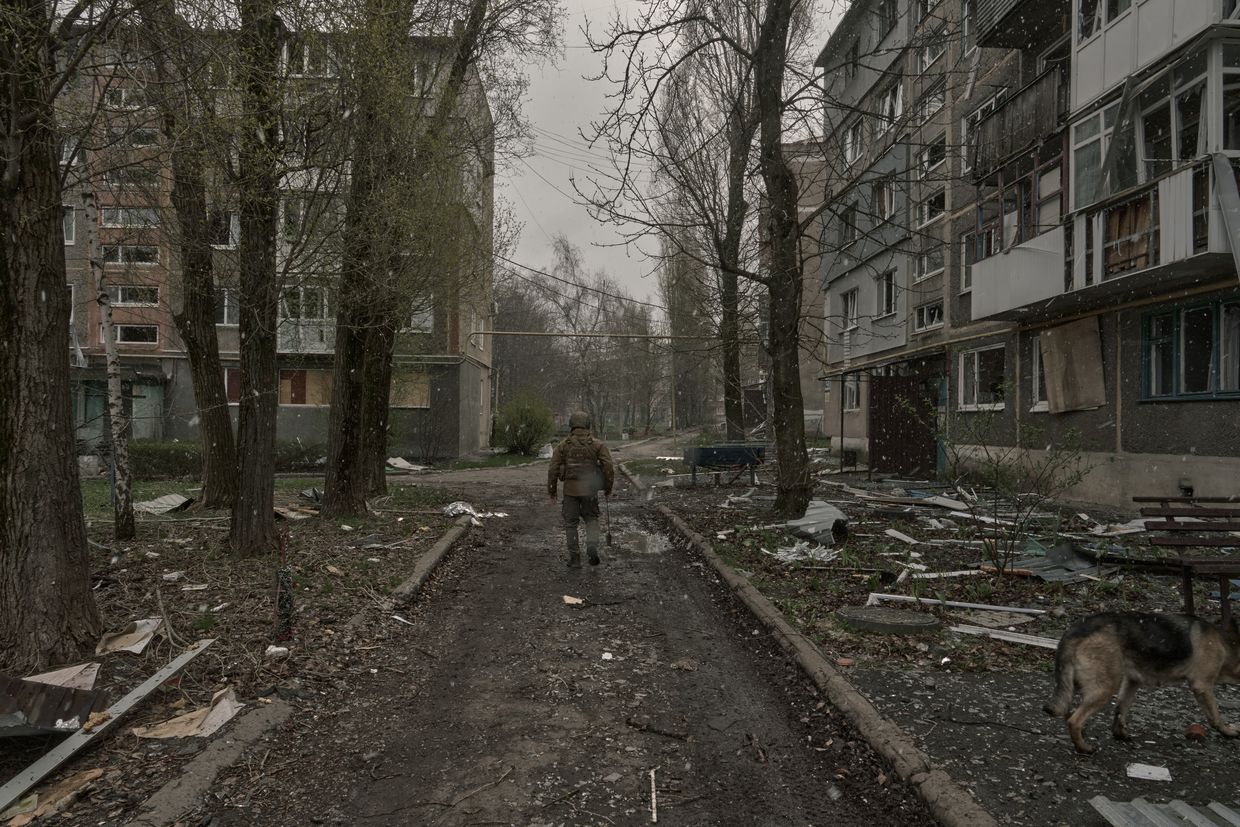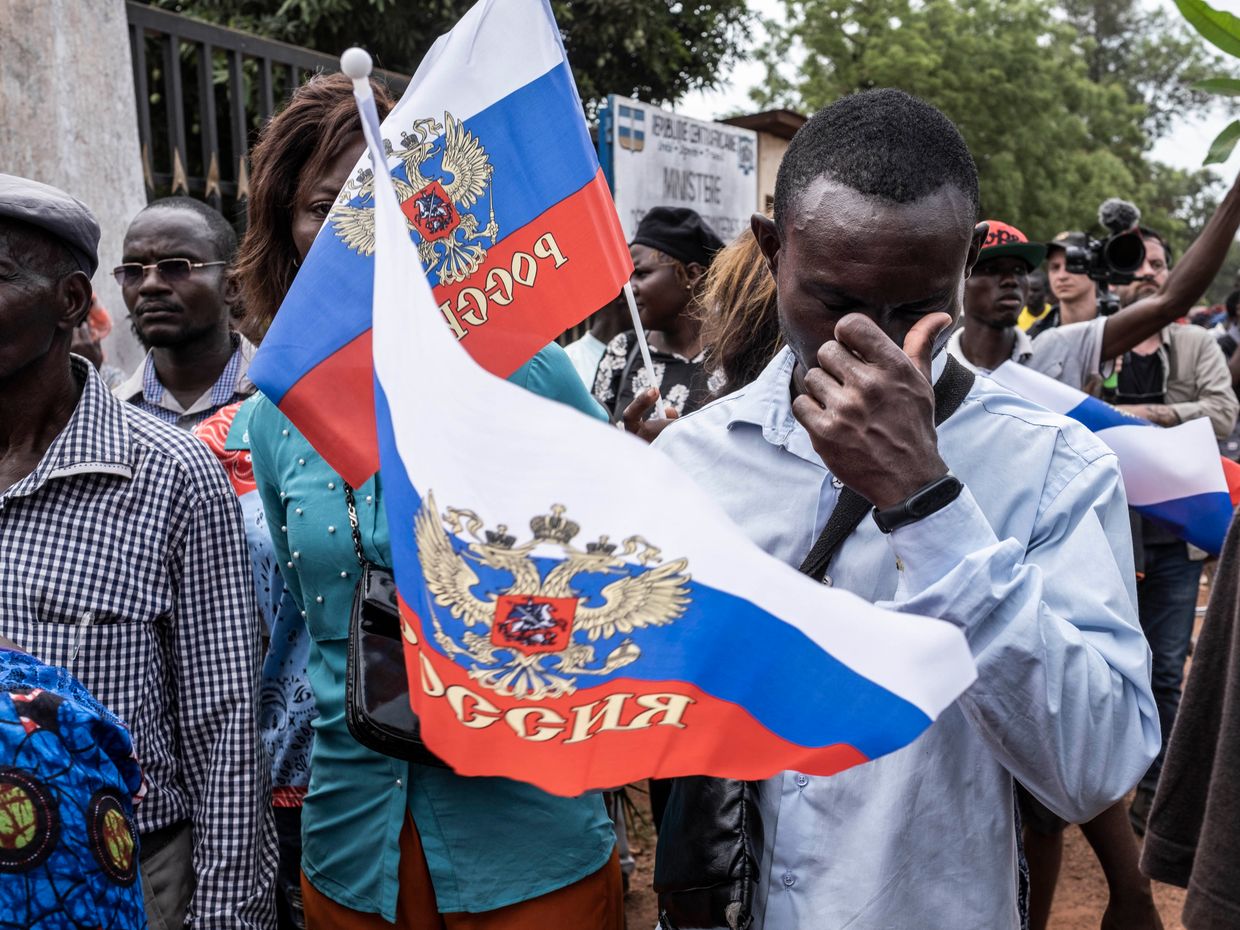Investigative journalists in Ukraine came under two attacks in just the past week, one involving a threatening home visit and another using covert surveillance.
The two incidents are the latest in a series of discrediting campaigns against independent Ukrainian media, often supported by anonymous pro-government Telegram channels, raising concerns about increasing pressure on press freedom in wartime Ukraine.
“These are not ordinary cases when journalists are obstructed by (someone’s) security guards, for example, or not allowed to go somewhere,” Oksana Romaniuk, the head of the Institute of Mass Information, a Ukrainian NGO monitoring violations of freedom of speech, told the Kyiv Independent.
“This is systematic work aimed at discrediting journalists, making them some kind of enemies of the people, so that they and their investigations are not trusted,” Romaniuk said.
Ukrainian and international media organizations called on the Ukrainian authorities to immediately react to the attacks on journalists and establish those responsible. President Volodymyr Zelensky briefly commented on the issue a day after the latest attack. Without naming the media that was targeted, he said that “any pressure on journalists is unacceptable.”
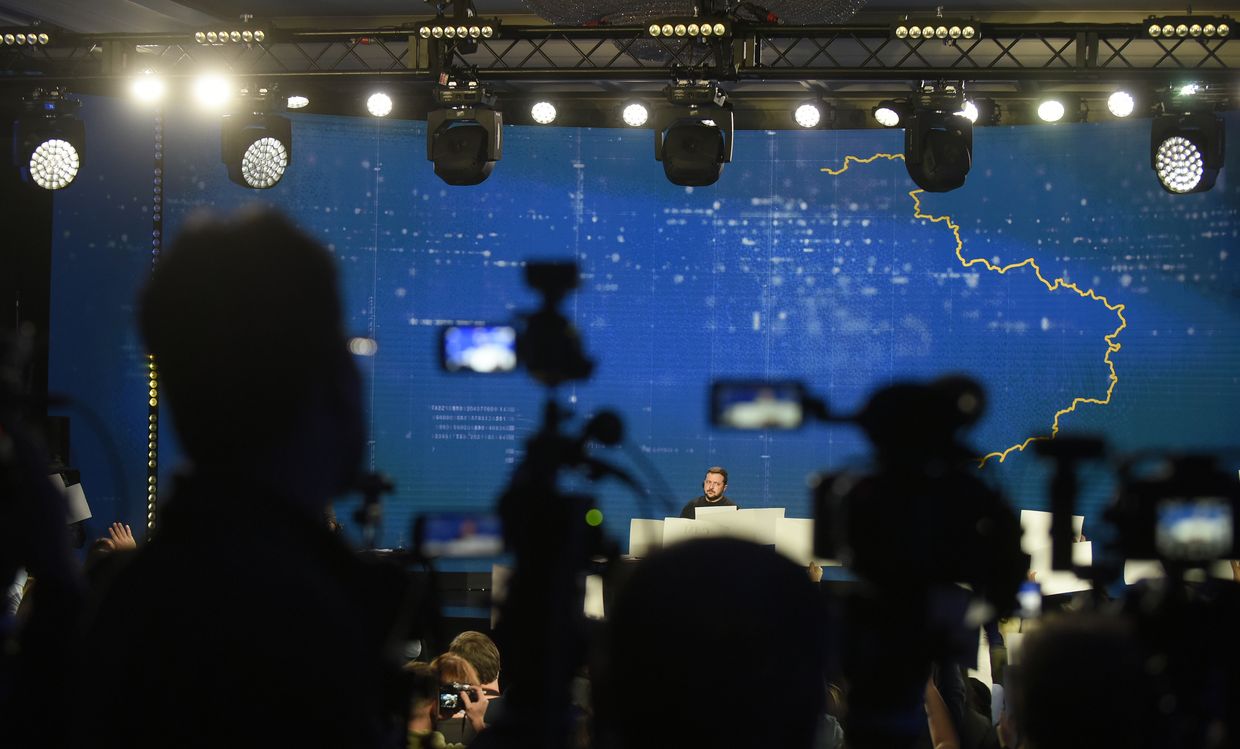
Following Zelensky’s statement, the National Police opened a criminal case over the covert surveillance of the affected journalists. Romaniuk suggested the two events are connected, but said that the final result should be a publicly seen investigation into the cases of pressure.
The latest attacks on journalists come amid already increased pressure on press freedom in Ukraine posed by Russia’s full-scale war, which has brought limitations to what Ukrainian media can cover, especially in military-related topics, and the government’s efforts to unify the media coverage, such as Ukraine’s TV marathon.
“Ukraine already has a big external issue to focus on in terms of the safety of journalists. If, on top of this, internal actors start attacking journalists, then the situation will become even worse,” Karol Luczka, Eastern Europe Monitoring and Advocacy Officer at the International Press Institute (IPI), told the Kyiv Independent.
“In an environment where journalists and everybody else in Ukraine are facing physical danger, it's really not the time to engage in discrediting attempts of Ukrainian journalists, it's never the time, but especially now.”
Surveillance of top investigative team
The latest attack involved a video showing some staff members of Bihus.Info investigative outlet using drugs during a private party in late December. It was published on Jan. 16 by a little-known website that appears to pose as a news outlet.
Bihus.Info is one of the best-known investigative outlets in Ukraine, having exposed alleged corruption and misconduct by scores of Ukrainian politicians and officials over the years.
Among their latest stories were those looking into Dmytro Tyshlek, former deputy chief of the National Police; David Arakhamia, the head of Zelensky's Servant of the People faction; Yurii Golyk, a top “construction consultant” for the Presidential Office, and Presidential Office head Andriy Yermak’s former business partner Artem Koliubaiev.
The “expose” video that targeted Bihus.Info included footage recorded using a hidden camera placed inside the hotel room where the employees’ party took place, as well as filming them on the street outside the hotel.
In addition to that, the video featured recordings of tapped phone calls of several employees of the news outlet, where they appear to be making plans to do drugs at the party. The tapping of the phones led many commentators to believe that law enforcement agencies were behind it.
After analyzing the video, Bihus.Info said its employees had been surveilled for months, “looking for ways to discredit the staff.” The cameras were likely installed a day before the party. According to a statement by the hotel’s director, some people rented almost all the rooms in the hotel the day before the Bihus.Info team checked in.
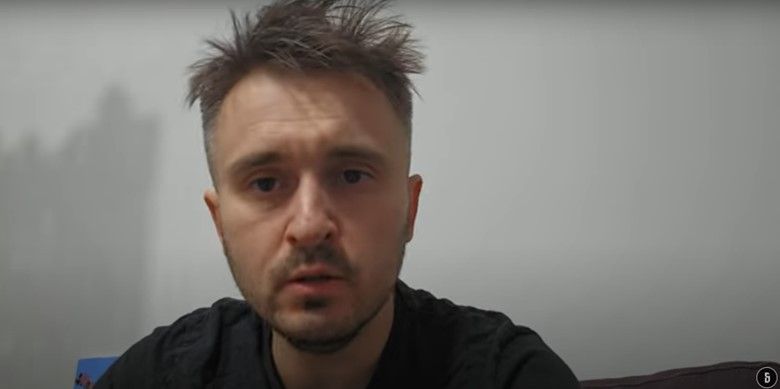
The video was released through a website, Narodna Pravda, that ran a scandalous headline suggesting that Bihus.Info stories can’t be trusted due to “drug use” by its “journalists.” The website poses as a news outlet but doesn’t appear to be one. A Ukrainian fact-checker, Olena Romaniuk, noted discrepancies on the website’s “editorial team” page, with names and biographies appearing to have been made up, and photos likely generated by AI.
Denys Bihus, a Ukrainian investigative journalist and head of the outlet, emphasized that the employees recorded in the video were not journalists but cameramen and that he decided to fire them after the incident. Bihus has joined Ukraine’s armed forces since the beginning of the full-scale invasion in February 2022, with the rest of the team continuing to run investigations.
When asked who could be behind the surveillance, Maksym Opanasenko, an editor at Bihus.Info, said the outlet is doing its own investigation and will share the results when they have enough evidence, adding though, that he’s confident some law enforcement agency or other authorities were involved.
“There are limited technical and legal possibilities for wiretapping phones in Ukraine. And one way or another, they all lead to very few options,” Opanasenko told the Kyiv Independent. Bihus.Info’s lawyers are working to discover if there were any legal grounds to surveil the outlet’s employees, he added.
Romaniuk suggested the attack could be “revenge” from those whose misdeeds were revealed in Bihus.Info’s investigations.
Critical journalist gets aggressive visit
Just two days before the video targeting Bihus.Info was released, two unidentified men approached the apartment of a prominent journalist Yurii Nikolov, known for exposing corruption in the country's public procurement. They were aggressively banging on his door, demanding the journalist open the door and talk to them, calling Nikolov a “traitor,” “Kremlin’s bitch” and “(military service) evader.”
Nikolov, a co-founder of the Nashi Hroshi, a website looking into state procurement, authored investigations into inflated prices for food supplies and low-quality winter jackets for the military that prompted the ousting of previous Defense Minister Oleksii Reznikov in 2023.
Nikolov wasn’t at home at the time of the visit. He found out about the incident from his elderly mother, who was in the apartment, and a video on the anonymous pro-government Telegram channel Kartochnyy Ofis, which appeared when the visitors were still near his apartment, Nikolov told Radio Free Europe/Radio Liberty (RFE/RL).
Some journalists and media watchdogs have said the Telegram channel is linked to the Presidential Office, though it has not been confirmed. Daria Zarivna, senior adviser to the head of Zelensky’s office, has reportedly denied any connection.
The Telegram post claimed that Nikolov had been visited by "soldiers who returned from the front line and decided to give him a draft summons," but the journalist told the Kyiv Independent that the men did not leave a summons or any official document, just pasted his door with papers having hand-written insults on them.
When asked what could have prompted the threatening visit, Nikolov mentioned a post on another Telegram channel allegedly affiliated with the Presidential Office that directly linked the attack to Nikolov’s criticism of Zelensky in a YouTube show two weeks earlier.
On the show, produced by Ukraine’s biggest news media outlet Ukrainska Pravda, Nikolov criticized Zelensky and half-jokingly called him a “draft evader” for refusing to explain the upcoming mobilization to the public and shifting this responsibility to others.
Pressure building up
Over the past months, there have been other cases of discrediting online campaigns against independent Ukrainian journalists, including the chief editor of Ukrainska Pravda Sevgil Musayeva. She told the Kyiv Independent that a series of derogatory posts about her personal life appeared on the same Telegram channel which targeted Nikolov later.
Musayeva said the attack on her could be connected to the same video where Nikolov lashed out at Zelensky, since it was produced by Ukrainska Pravda and broadcast on its YouTube channel. But most likely, she said, it was a general response to the work of Ukrainska Pravda, often critical of the government.
She echoed remarks by other journalists that the latest attacks reminded her of discrediting campaigns against independent media in the times of disgraced former president Viktor Yanukovych, ousted by the EuroMaidan Revolution in 2014, and another ex-president Petro Poroshenko.
These campaigns were carried out using similar methods, in particular, anonymous online platforms, added Musayeva.
“It’s a pity that every Ukrainian leadership perceives journalists as enemies,” she said.
Campaigns, such as the one that targeted Musayeva, involve streams of disparaging messages on online platforms, including Facebook, Twitter, and pro-government Telegram channels. They often target personal life.
“Anonymous Telegram channels, which publicly declare that they work for the government and constantly protect it, and ‘garbage sites’ already systematically harass independent media and investigative journalists, arranging provocations for them in real life,” Mediarukh, an informal union of Ukraine’s prominent journalists, said in a Jan. 17 statement.
According to Oksana Romaniuk, the pressure on Ukrainian journalists rose significantly last year. It seemed to happen after journalists resumed their investigations into Ukrainian authorities, something that was largely put on hold at the start of the full-scale war to focus on crimes committed by Russian forces.
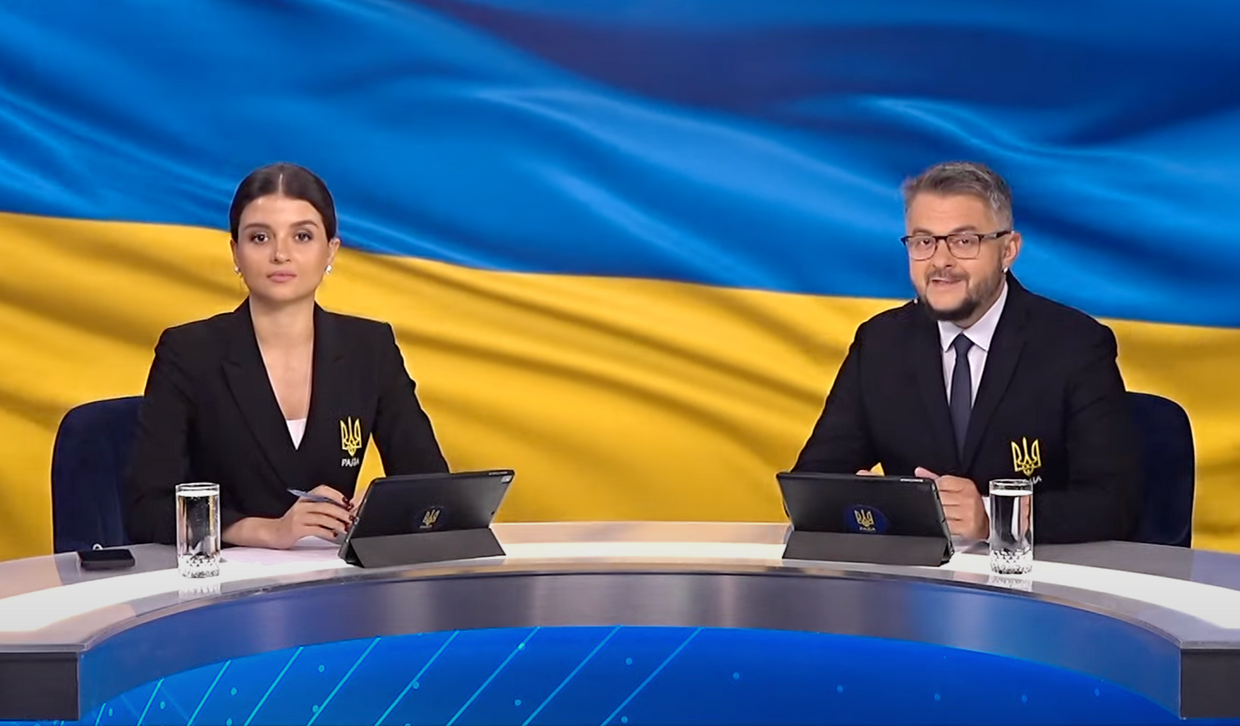
Yaroslav Yurchyshyn, the head of the Ukrainian parliament's committee on freedom of speech, told the Kyiv Independent his committee also noticed signs of systematic pressure against independent media, but a final assessment requires results from law enforcement agencies who launched investigations into the cases of pressure.
Ukraine saw a drop in the investigation of crimes against journalists by almost 80% in 2022 compared to the previous year, Yurchyshyn said on Jan. 10, adding that his committee had been in talks with law enforcement to solve the issue.
“They (law enforcement, government agencies) have always been interested in trying to get to us somehow,” Bihus told the Kyiv Independent, recalling the instance when somebody was spying on the Bihus.Info team from a car parked near their office.
“It's just that never until today has it taken such sharp forms as putting a camera in a girls’ hotel room,” he added. “I have no words.”
Recently, the Kyiv Independent has also experienced some undue interest from law enforcement that could be seen as pressure.
“In the past few months, we’ve experienced some unusual and concerning attention from Ukraine's law enforcement,” said Olga Rudenko, the chief editor of the Kyiv Independent.
“It’s the first time since the founding of the Kyiv Independent over two years that we experience something like this. We're trying to find out more about the origins of this attention before we can interpret it."
Reactions
The attacks on Nikolov and Bihus.Info were followed by a swift condemnation from the Ukrainian media community and anti-corruption activists as well as international organizations protecting press freedom, such as the European Federation of Journalists and Reporters Without Borders.
They called on Ukrainian authorities to immediately investigate the incidents, bring the perpetrators to justice to deter similar actions in the future, and protect the affected media professionals.
“We declared ourselves a democratic David who fights against this evil Goliath, dictatorship, and totalitarianism. And many people in other countries support us precisely because they believe that they support democracy, these particular values,” said Oksana Romaniuk.
“We say that we should be accepted into the European Union, that we meet the standards there… But then we have to monitor what is happening inside the country. Such cases (attacks on journalists) should be a priority of our authorities.”
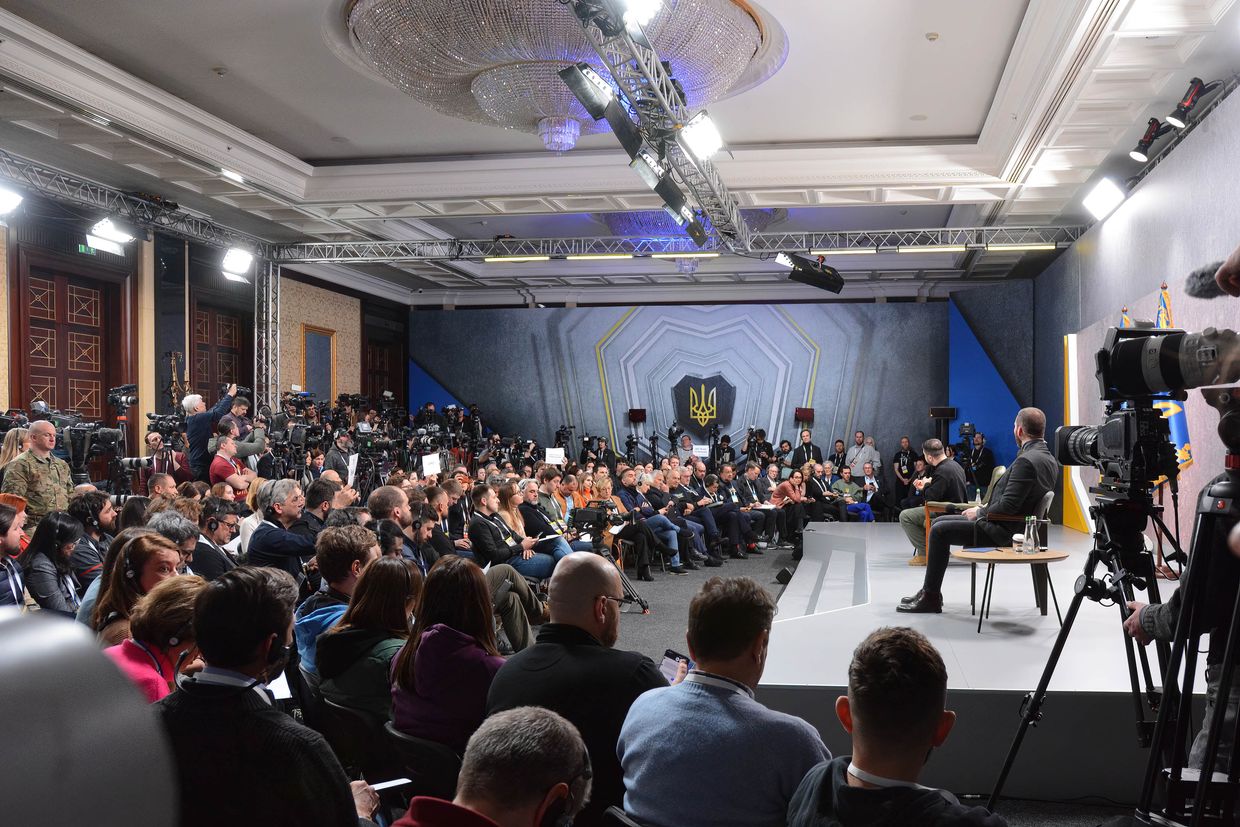
The SBU said it had launched an investigation into the surveillance of Bihus.Info journalists on Jan. 17, but according to Bihus.Info, its team members were not yet recognized as victims in this case.
On the same day, the SBU reportedly searched the building where the outlet’s employees were secretly filmed, seized all the recordings from CCTV cameras, and refused to give copies to the outlet’s journalists, who arrived at the scene, saying that the hard drives with the recordings "were already packed."
The other case, that of Nikolov, has seen no attention from authorities yet. Nikolov filed a police report about the threatening visit, but as of two days later, the police were still deciding whether to open a criminal case, he told the Kyiv Independent. According to law, they have 30 days after accepting the report to make that decision.
“I won't refer to concrete past cases, but this can't be like this tendency where an investigation is opened, and nobody finds the people who caused this,” said Luczka of IPI.
“It is essential that the Ukrainian authorities continue to make clear that independent journalism is a cornerstone of democracy and must be fully respected in the country,” IPI Deputy Director Scott Griffen said in a statement.
